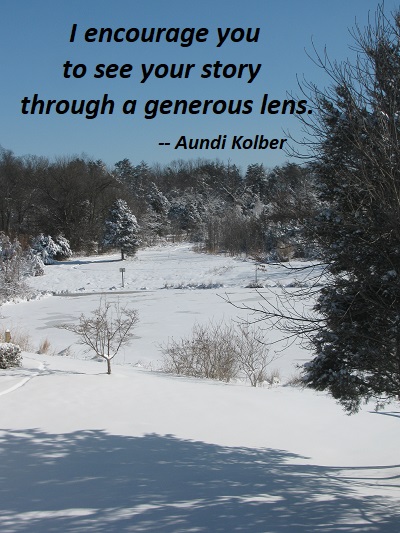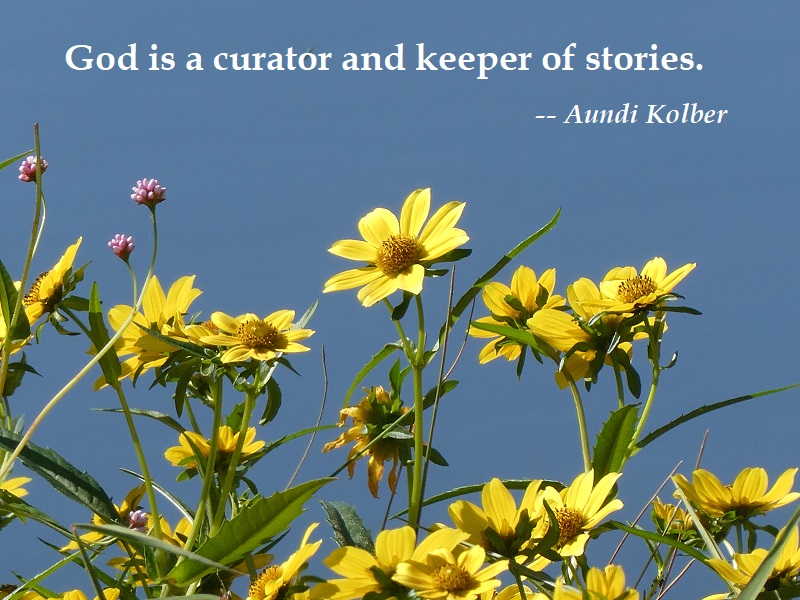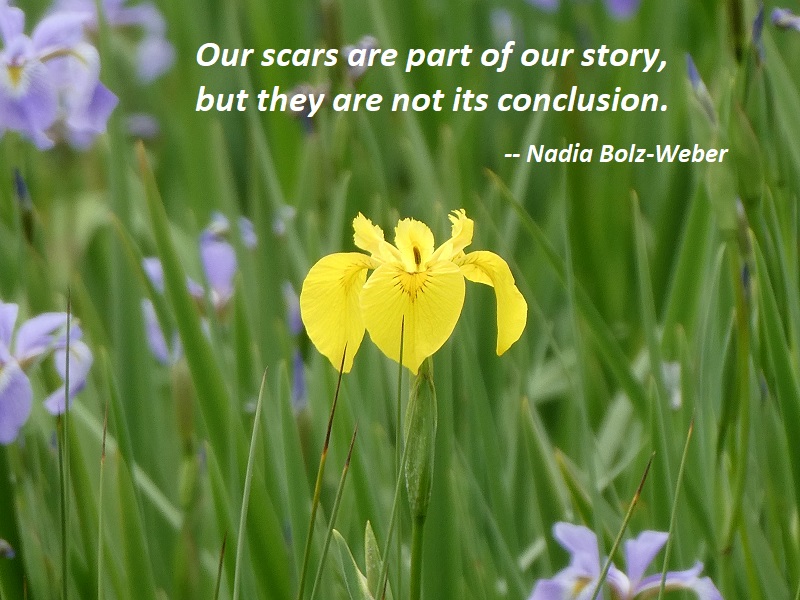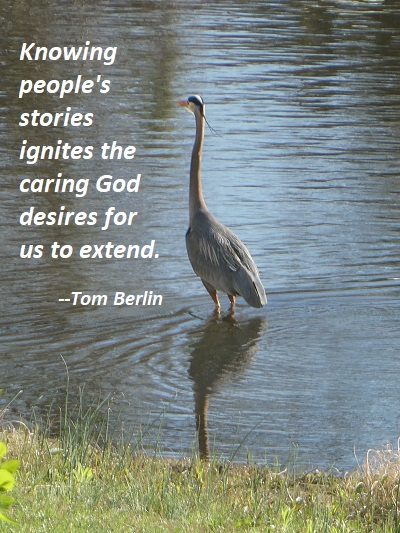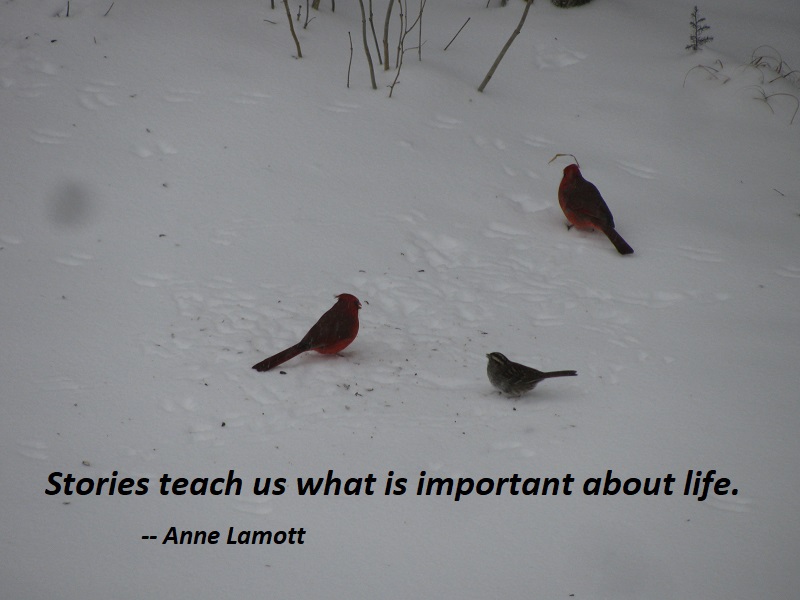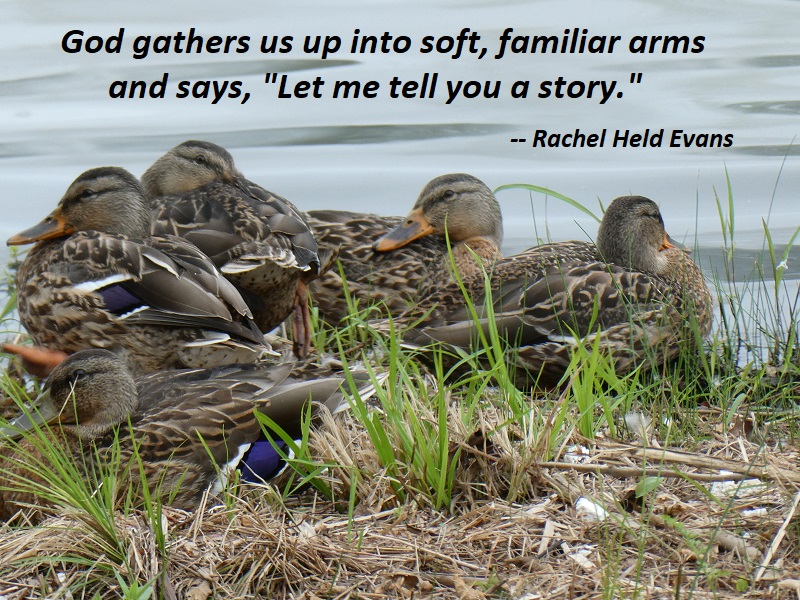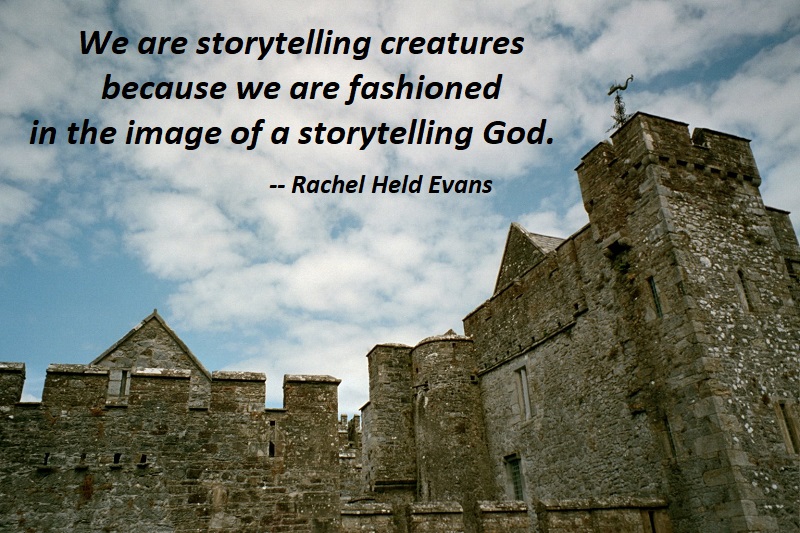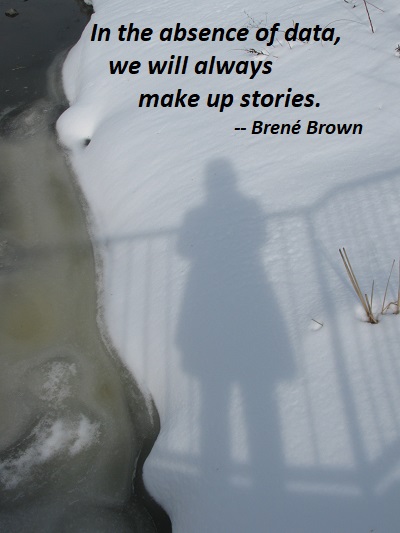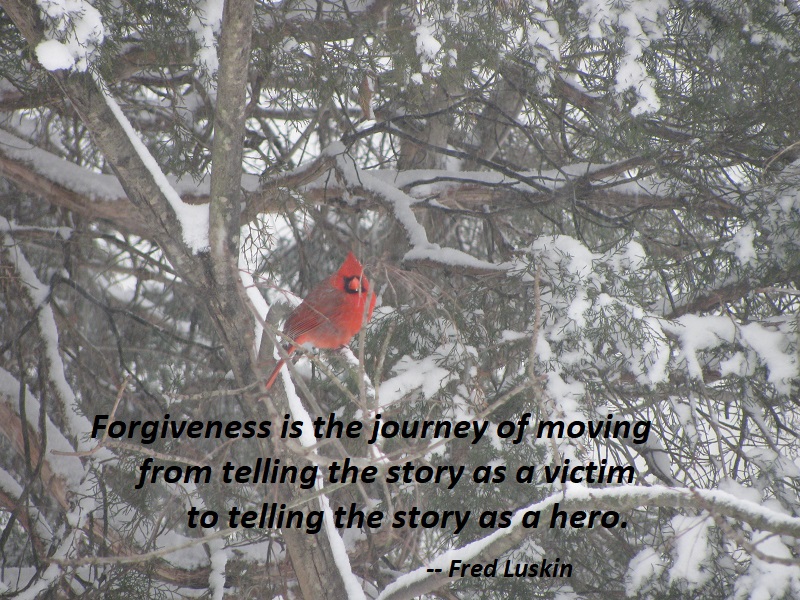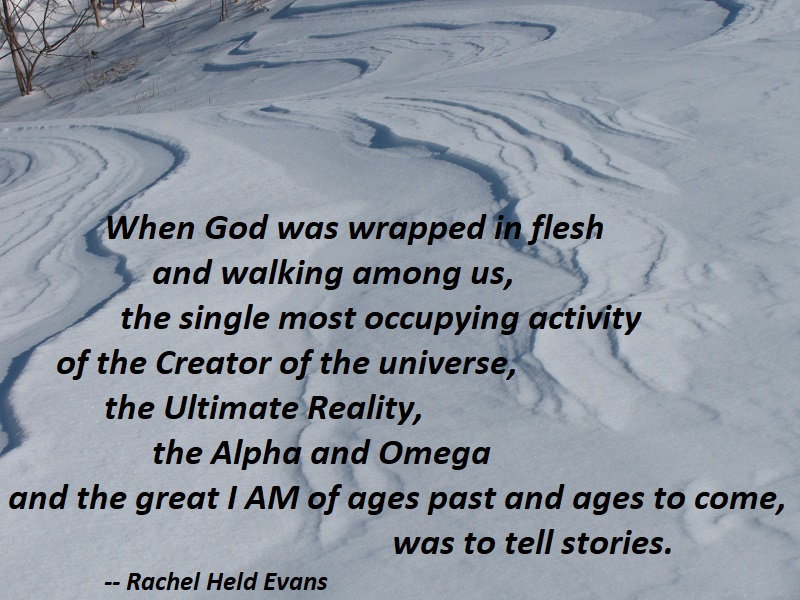A Generous Lens
Your story differs from the ones my mom and I tell, but the courage and perseverance you’ve drawn on just to survive are beautiful too. You can continue to connect with those parts of yourself that are brave and strong. That is the beauty of cowriting a new story with God: We get to choose what to cultivate and what we must learn to forgive in ourselves. I encourage you to see your story through a generous lens. Where are the nuggets of goodness for you to mine? Don’t forget these treasures.
— Aundi Kolber, Try Softer, p. 222
Photo: South Riding, Virginia, March 6, 2015
